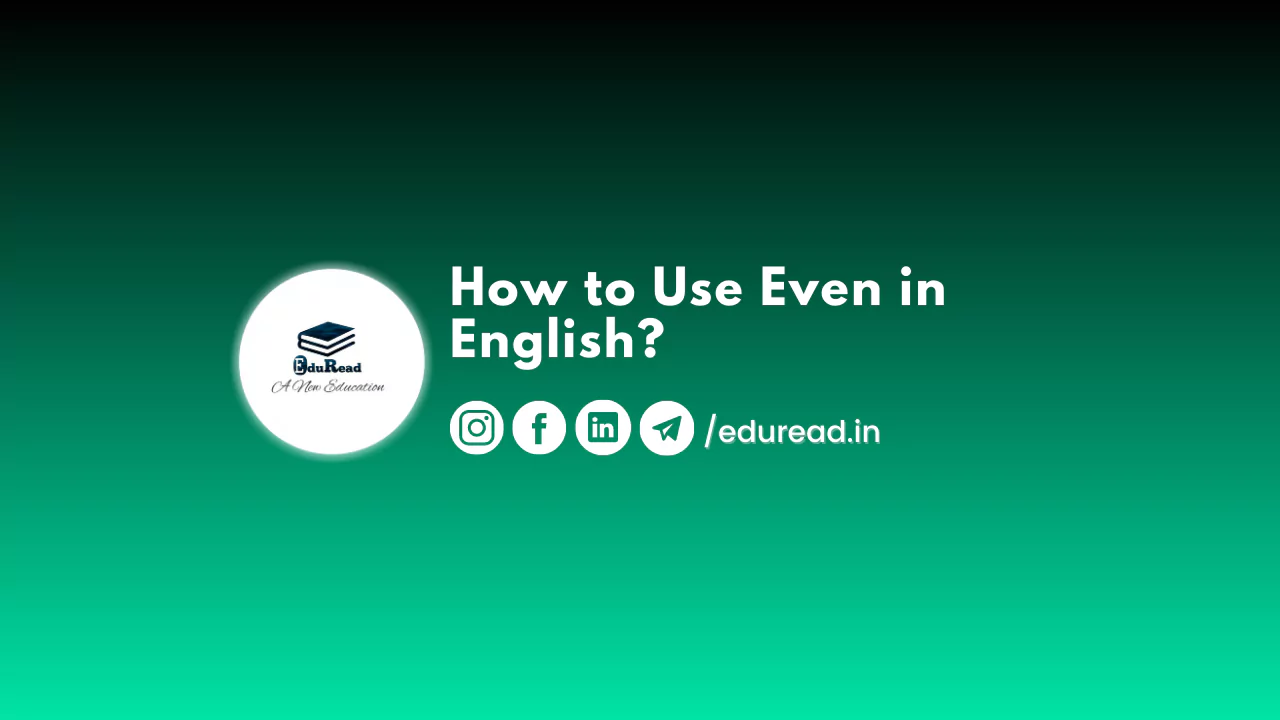Even is a versatile word in English that can be used in various contexts to convey different meanings. It is often used to indicate that something is unexpected, surprising, or unusual. In this blog, we will explore how to use even English and the different ways in which it can be used to enhance your writing.
Using Even for Emphasis
One of the most common uses of even is to emphasize a point. This is often done by using the word in combination with another word, such as “even more,” “even better,” or “even worse.” For example:
- I thought the first movie was great, but the sequel was even better.
- The weather was bad yesterday, but today it’s even worse.
- She’s already successful, but with her new business venture, she could make even more money.
Using Even for Contrast
Even can also be used to show a contrast between two things. In this case, it is often used with the word “though” or “but” to create a sentence structure that highlights the difference between the two ideas. For example:
- Even though he’s an experienced driver, he still got into an accident.
- She’s a great cook, but even she couldn’t make that recipe work.
- He’s normally very calm, but even he lost his temper in that situation.
Using Even for Unexpected Situations
Another use of even is to indicate that something is unexpected or surprising. This is often done by using even a statement that is contrary to what was expected or anticipated. For example:
- Even the best-laid plans can go awry.
- He’s always been healthy, but even he got sick last week.
- The restaurant is usually busy, but even on a Saturday night, it was empty.
Using Even for Fairness
Even can also be used to suggest fairness or equality. This is often done by using the word in combination with “out” or “up” to create a sense of balance. For example:
- Let’s divide the cake even-stevens.
- The teams were evenly matched, which made for an exciting game.
- I want to make sure that everyone gets an even share of the profits.
Using Even for Probability
Even can also be used to express probability or likelihood. In this case, it is often used with the word “chance” or “odds” which suggests that something is equally likely to happen or not happen. For example:
- There’s an even chance that we’ll win the game.
- The odds of getting into that school are even.
- We have an even chance of finding a parking spot near the mall.
Using Even for Comparison
Finally, even can be used to make comparisons between two things. This is often done by using the word in combination with “as” or “then” to create a sentence structure that highlights the similarity or difference between the two ideas. For example:
- The new car is even faster than the old one.
- She’s just as smart as her brother, if not even smarter.
- The vacation was even more relaxing than I had anticipated.
Conclusion
In conclusion, even is a powerful word in English that can be used in many different contexts to convey different meanings. By using even in your writing, you can add emphasis, create contrast, highlight unexpected situations, suggest fairness or equality, express probability or likelihood and make comparisons. With a little practice, you can use even to enhance your writing and make it more interesting and effective.
Follow Us for more such content to improve your speaking skills:
Check out this blog to overcome Public Speaking Fear: https://eduread.in/prepositions-of-place-in-on-at-speak-new-york/
And visit us for more
